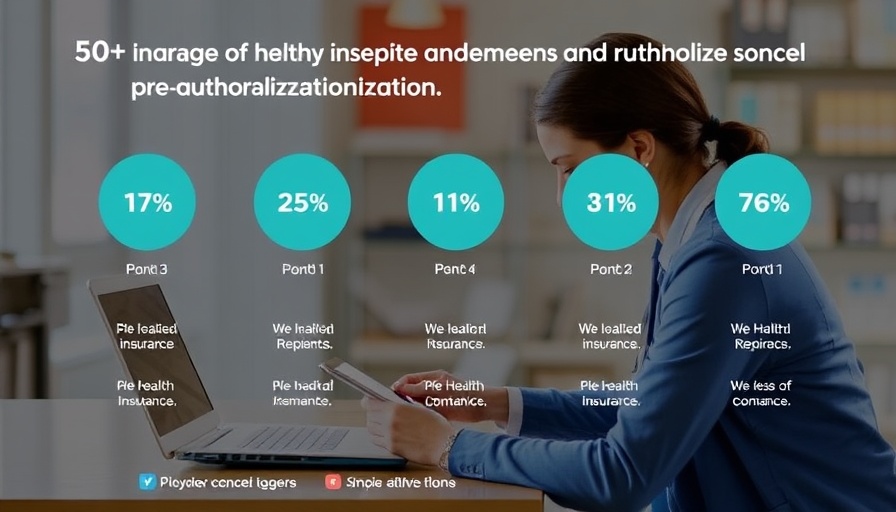
Reforming Pre-Authorizations: A Lifeline for Health Care Recipients
In a monumental move towards enhancing patient care, over 50 health insurance companies have pledged to streamline the prior authorization process that affects nearly 80% of health care recipients across America. Announced by Health and Human Services Secretary Robert F. Kennedy, Jr. and CMS Administrator Dr. Mehmet Oz, this initiative aims to alleviate the administrative hurdles that frequently delay critical medical services, thereby improving the overall health care experience.
The Burden of Prior Authorizations
The prior authorization process requires doctors to obtain permission from insurance providers before delivering specific treatments, medications, or tests. This can lead to frustrating delays for patients who urgently need care. Recent discussions among top insurers highlighted these concerns, emphasizing the need for reforms to streamline this cumbersome process.
Voluntary Changes: What to Expect
The reforms include significant changes such as standardizing electronic submissions to achieve “real-time approval”, reducing the number of services that require prior authorization, and increasing transparency in authorization decisions and appeals. These measures can dramatically cut down on unnecessary waiting times and administrative expenses, allowing both patients and providers to focus on what truly matters—health care.
The Voices Behind the Change
As noted by Dr. Oz, the health care system is currently wasting resources on administrative procedures. He pointed out that health insurers had recognized the need for reform—"We’re throwing money away on administrative costs financially. We’re also wasting people’s time." This acknowledgment by leading insurers is a critical step in shifting the focus back to patient care.
Local Impact: Elderly Care in Muskegon
This pledge comes at a vital time for elderly care services in communities such as Muskegon. With many residents dependent on Medicare and Medicaid, streamlining pre-authorization can ensure quicker access to necessary services like assisted living and cognitive care, which are crucial for maintaining health and quality of life for seniors.
Looking Ahead: Future Considerations for Senior Care
As insurers commit to these reforms, it’s essential to consider how this will impact long-term health coverage for elderly populations. Specialists in senior care, like those at various cognitive care facilities in Muskegon, are optimistic that these changes will enable faster decision-making, ensuring that care solutions align more closely with the needs of the elderly.
Encouraging Caregiver Support
The reforms also carry significant implications for caregivers, who often navigate complex insurance systems on behalf of their loved ones. Improved communication and transparency can lessen the burden on these caregivers, allowing them to provide better support without the frustration of extensive paperwork and waiting periods. Community resources for caregivers can also play a vital role in this transition.
Conclusion: Seizing the Opportunities
With the pledge from these insurance companies, there’s hope for a new framework that prioritizes patient care over administrative hurdles. It offers a chance for seniors in Muskegon and beyond to access vital health services more efficiently. As stakeholders from the health care community gear up for these changes, it’s crucial for patients and caregivers to stay informed about the services available to them. Together, we can advocate for sustained improvements in our health care systems, ensuring that everyone—especially our seniors—receives the care they need and deserve.
Join the conversation on how these reforms can shape a better future for health care in your community. Participate in local forums or reach out to elder services offices to learn more about supporting the health of our seniors.
 Add Row
Add Row  Add
Add 




Write A Comment